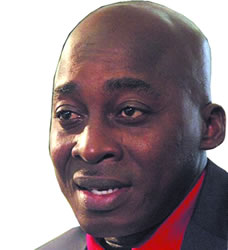


Posted by By DANIEL ALABRAH on



In continuation of their international campaign for the freedom of Mr Henry Okah, Ijaw indigenes under the aegis of the Ijaw National Congress (INC) Europe have petitioned the International Court of Justice (ICJ) over the secret trial of the leader of the Movement for the Emancipation of the Niger Delta (MEND) by the Federal Government of Nigeria.
In continuation of their international campaign for the freedom of Mr Henry Okah, Ijaw indigenes under the aegis of the Ijaw National Congress (INC) Europe have petitioned the International Court of Justice (ICJ) over the secret trial of the leader of the Movement for the Emancipation of the Niger Delta (MEND) by the Federal Government of Nigeria.
Okah is being tried at a Federal High Court sitting in Jos, Plateau State, on a 62-count charge bordering on treason and gun running.
The INC Europe wants the ICJ to exercise 'advisory injunction' in the case between the Federal Government and Okah, saying it was invoking its powers in Article 96(2) of the Charter of the United Nations.
It noted that the court cannot entertain cases involving individuals except instituted by countries but stated, however, that 'by Article 96.2, the ICJ can intervene in such cases in advisory capacity, which is not binding but cannot be ignored by governments/countries.'
In the petition dated September 8, 2008, signed by the Chairman, Dr Felix Tuodolo, and Secretary, Mr Justice Livingstone, and addressed to the ICJ Registrar, Mr Philippe Couvreur, the group contended that the secret trial would result in the miscarriage of justice against an Ijaw indigene.
Citing Article 10 of the Universal Declaration of Human Rights (1948), which precisely enshrines a right to fair trial on issues relevant to the determination of criminal allegations, the INC contended among other points that, 'the notion of a secret trial of an alleged crime in a purported democratic society not only undermines our universally guaranteed liberties, but also depicts the evil and sorrow that shrouds its citizens in such territories.
'It is our contention that the Nigerian government has been and is deliberately abusing its powers with impunity on Mr Henry Okah's issues, contrary to International Laws, and in general against the legitimate struggle and agitations by the Niger Delta people, as guaranteed by the International Covenant on Civil and Political Rights (1966), in particular, as provided by Article 1 & 2 of this Covenant.
The fear of the Ijaw indigenes in Diaspora is that if Okah is found guilty, he faces the death penalty, contrary to Article 1 of the Second Optional Protocol to the International Covenant on Civil and Political Rights, aiming at the Abolition of the Death Penalty (1990).
They are, therefore, seeking the advisory opinion and intervention of the ICJ on the alleged injustice faced by Okah.
They also reasoned that a purposeful engagement by the International Court of Justice with the Nigerian government and the mandates of the Ijaw people would impact a positive peace process in the Niger Delta just as the group called for Okah's release.
'…The Court is simply but respectfully asking that our demand for the imminent release of Mr Henry Okah be guided onto the government of Nigeria and his release be secured in the best interest of international peace and justice, where there is no legal justification for his unnecessary, prolonged and unlawful deprivation of liberty,' the INC stated.

